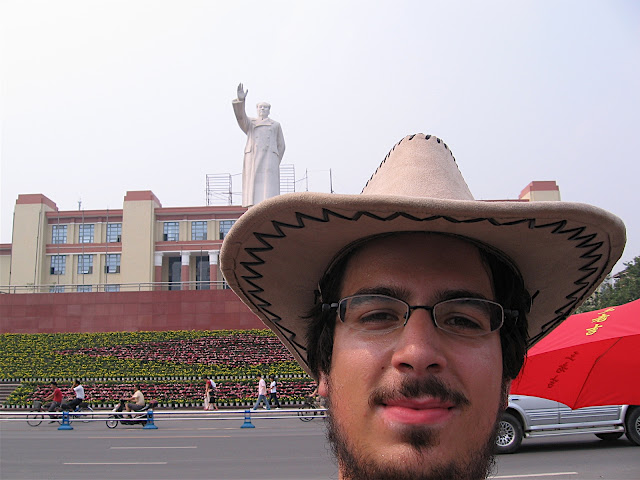
Mario Dumont is the young co-founder and leader of Action Démocratique du Québec (ADQ) and the current official Leader of the Opposition at the National Assembly of Québec. You'll very rarely see a sentence with "Mario Dumont" in it without the ADQ abbreviation somewhere, and vice versa. He created the ADQ 14 years ago and it has basically always been ruled by Dumont, who is merely 38 years old as of 2008. The party was created as a break up from the Liberals (PLQ) over a dispute regarding the status of Québec in the federation. He supported the independence in the 1995 referendum but has since changed his position to "autonomiste", which means that Québec should attempt to gain more autonomy within the current Constitutional framework of Canada. His party is officially more to the right than the other parties, but in reality it could be more accurately defined as populist; positions appear to be taken on the basis of what is popular at the moment rather than coming from clearly articulated principles.
He has been elected in the National Assembly (NA) at every elections since 1994. For years, the party seemed doomed to be a small third party with no power, with only Dumont as a MNA. Although popular with the press and not shy about criticizing the ruling government, Dumont was not taken very seriously in the 1990s, being seen as too young and inexperienced; but the consensus was that he was an up and coming politician with a future. Growing disillusionment with the ruling PQ in 2002 allowed the ADQ to score a few more seats in the NA. But in the elections of 2003 he was seen as a serious contender for the first time and was attacked hard by both main parties; the final result of 18% of the vote and 4 seats was mitigated for the ADQ, but it clearly signaled that it was now a forced to be reckoned with.
The ADQ opportunity to take power came in 2007, with an unpopular incumbent (Jean Charest - PLQ) and an even more unpopular PQ challenger named André Boisclair, who was burdened by a party platform written by hardliners which he had to follow. But even as it tried to get elected, the ADQ was still mostly a one man show, with the only other "serious" member of the ADQ being Gilles Taillon, a well known businessman. While leading in several polls, the end result was disappointing for the ADQ, finishing second with a minority PLQ government.
The results of 2003 and 2007 showed a similar pattern. The support of the ADQ was high far from the election and dropped as Election Day grew nearer; the explanation for this pattern is that Dumont was a good critic of the government and managed to get a lot of attention with juicy soundbites, but he could not convince enough people that he and his party was ready to take over governing. In other words he could convince the population that the other parties were no good, but he could not removes lingering doubts that he was not ready to take over. So what he had to do after the 2007 elections was obvious: use his new platform as the Opposition Leader of the National Assembly, along with its new team of 41 MNAs, to show the province that he could not only complain, but he could also propose solutions and govern.
What was the result? Well if you read my previous post you know that the ADQ is polling at around 15% right now, a massive 16% drop compared to 2007 and even lower than the 2003 election results. The party also lost four by-elections this year, never exceeding 15% of the vote. The heavyweight Gilles Taillon committed political suicide by leaving his safe riding for one where he is sure to lose, which is widely seen as a polite way to leave the party. Last month, 2 MNAs decided to jump ship for the PLQ. ADQ members have openly described them as "rats jumping a sinking ship", which tells you about as much about how they see the 2 defectors as how they see their own party. The problem appears to be that Dumont was unable to transform his one-man party into a strong organization. Morale is low in the ADQ and questions about Mario Dumont's future are floating around. At 38 years old he still has plenty of time ahead of him, but after spending more than a decade specializing in criticizing the government, he will have to turn the focus on his own person and take an honest assessment of what he did wrong.




No comments:
Post a Comment